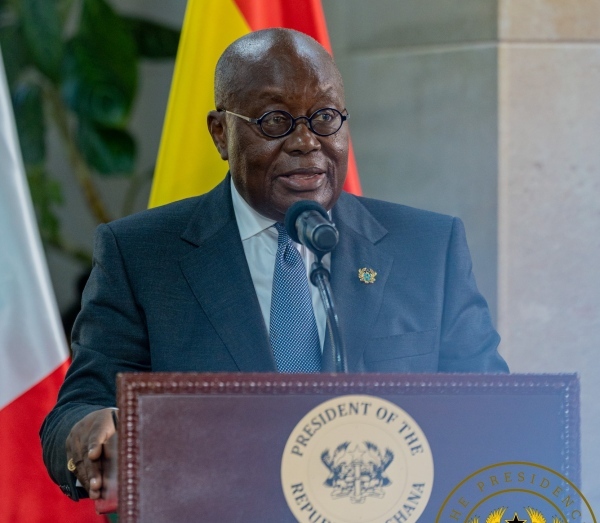At the SDGs Action Summit 2024, President Nana Addo Dankwa Akufo-Addo delivered a keynote address highlighting both the significant progress Ghana has made towards achieving the Sustainable Development Goals (SDGs) and the ongoing challenges that need to be addressed.
President Akufo-Addo began by welcoming participants to Accra and acknowledging the collaborative efforts of international and national partners in organizing the summit. He then provided an overview of the advancements made in various sectors across Africa, with a particular focus on Ghana’s achievements.
Over the past decade, Africa has expanded access to safe drinking water, improved healthcare systems, enhanced educational opportunities, increased electrification rates, and made progress in gender equality and environmental stewardship. In Ghana, the electrification rate has seen a remarkable increase from 66.7% in 2010 to 88.87% in 2020, with the aim of achieving universal access by the end of the year. This progress, President Akufo-Addo noted, is a testament to the nation’s resolve and collective efforts.
The President also highlighted Ghana’s firm attachment to the SDGs, emphasizing that the Goals are deeply embedded in the country’s national policies and programs. He cited the transformative Free Senior High School (SHS) policy, launched in 2017, which has dramatically increased enrolment rates. Currently, 1.6 million Ghanaian students benefit from access to quality education, up from 800,000 in 2017. This policy, the President explained, has not only opened doors for countless young minds but has also advanced gender parity and reduced inequality.
In the health sector, President Akufo-Addo mentioned the National Health Insurance Scheme (NHIS), launched in 2003, which now covers over half the population, improving access to healthcare for the poor and vulnerable. Additionally, the deployment of Zipline drones for medical deliveries since 2019 has revolutionized supply chain logistics, ensuring rapid delivery of vital health products to remote areas, thus bolstering healthcare efficiency and outcomes.
Ghana’s digital transformation agenda was also highlighted, marked by the successful rollout of the biometric Ghana Card to 17 million people, enhancing access to services and electoral integrity. The country leads in mobile money penetration, with 68.2 million accounts in a population.






